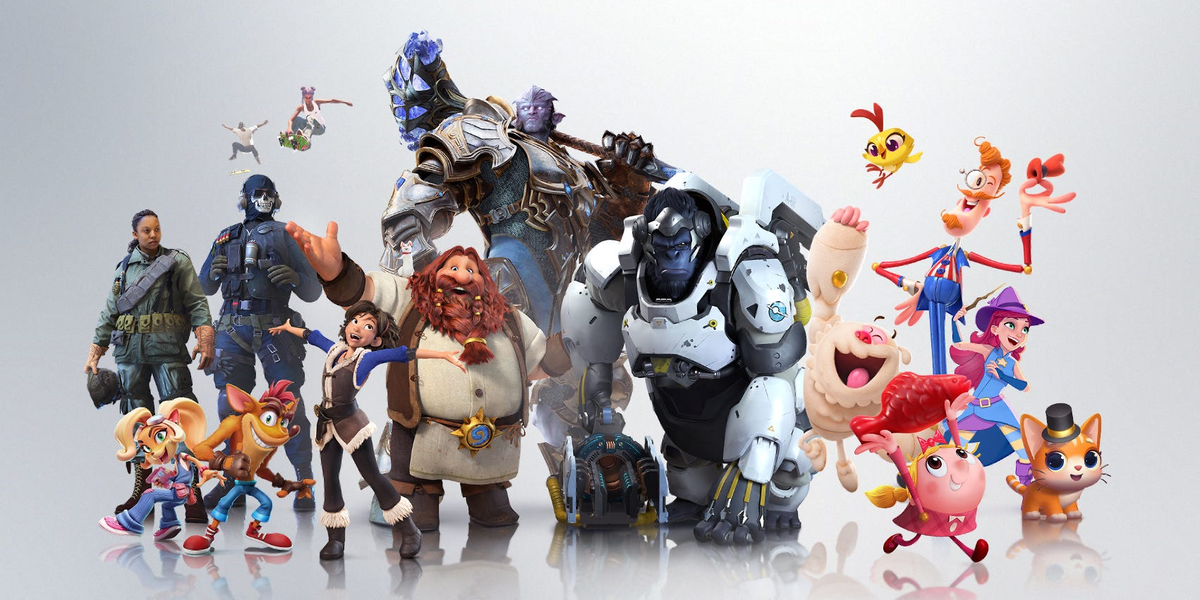The End of the Road: FTC Drops Case Against Microsoft’s Acquisition of Activision Blizzard
After a protracted legal battle that began in 2022, the U.S. Federal Trade Commission (FTC) has officially dropped its case against Microsoft’s $68.7 billion acquisition of Activision Blizzard. This decision marks the end of a significant antitrust challenge and allows Microsoft to fully integrate the gaming giant into its operations. The FTC’s initial lawsuit, filed in December 2022, argued that the acquisition would harm competition in the dynamic and fast-growing gaming market. However, after facing legal setbacks, the commission determined that “the public interest is best served by dismissing the administrative litigation.”
The Long and Winding Road
Microsoft’s acquisition of Activision Blizzard, finalized in October 2023, was the largest in the history of the video game industry. From its conception, the deal faced scrutiny from regulators worldwide, particularly in the United States, where the FTC raised concerns about its potential impact on competition.
The FTC’s primary argument was that the acquisition would give Microsoft an unfair advantage in the gaming market, allowing it to stifle competition in console gaming, subscription services, and cloud gaming. The agency worried that Microsoft could make Activision Blizzard’s popular titles, such as Call of Duty, exclusive to its Xbox platform, disadvantaging rivals like Sony’s PlayStation.
Despite these concerns, the acquisition was approved in most countries, including the UK, after some contention. However, the FTC continued its fight in the United States, even after the deal had closed. The commission filed an appeal to overturn a court decision that allowed the acquisition to proceed, but this appeal was rejected earlier this month.
A Shift in Strategy
The FTC’s decision to drop the case signals a potential shift in the agency’s approach to antitrust enforcement. FTC Chairman Andrew Ferguson, appointed by President Trump, has indicated a focus on cases that align with the current administration’s agenda. This includes investigations into alleged advertiser collusion involving Elon Musk’s social media platform X, as well as a move away from some initiatives started by his predecessor, Lina Khan.
This change in direction may explain why the FTC decided to drop the Microsoft-Activision case, despite its initial concerns. The agency may have concluded that the legal challenges were too costly and time-consuming, and that the likelihood of success was low.
Industry Reactions
The FTC’s decision has been met with mixed reactions from the gaming community and industry professionals. Some have celebrated the end of the legal battle, viewing it as a victory for players and common sense. Microsoft President Brad Smith hailed the decision as “a victory for players across the country and for common sense in Washington, D.C.” He reaffirmed the company’s commitment to keeping Activision’s popular franchises available on multiple platforms.
However, others have expressed concerns about the implications of the acquisition for competition in the gaming market. Some worry that the deal could lead to higher prices, reduced innovation, and less choice for consumers. There are also concerns about Microsoft’s business practices, particularly regarding firings at acquired studios and price hikes for Game Pass after adding high-profile titles like Call of Duty.
The Future of Gaming
The Microsoft-Activision Blizzard acquisition is a watershed moment for the gaming industry. It consolidates two of the biggest players in the market, giving Microsoft a dominant position in console gaming, PC gaming, and mobile gaming. The deal also has implications for the future of gaming business models, as Microsoft continues to invest in subscription services and cloud gaming.
As Microsoft integrates Activision Blizzard into its operations, it will be interesting to see how the company balances its commitment to keeping popular franchises multiplatform with its desire to leverage exclusive content to drive subscriptions to Xbox Game Pass. The FTC’s decision to drop the case may have cleared the way for the acquisition to proceed, but the debate over its impact on the gaming industry is far from over.
Concerns Moving Forward
Despite Microsoft’s promises, the FTC’s initial concerns about the acquisition’s impact on competition remain relevant. The concentration of power in the hands of a few large companies could stifle innovation and lead to higher prices for consumers. It is essential for regulators to continue monitoring the gaming industry and to take action if necessary to protect competition.
The gaming community must also remain vigilant. Gamers can play a role in shaping the future of the industry by supporting independent developers, advocating for fair business practices, and holding companies accountable for their actions. Only through continued scrutiny and engagement can we ensure that the gaming industry remains competitive, innovative, and consumer-friendly.
The Road Ahead: Integration and Innovation
With the legal challenges behind it, Microsoft can now focus on integrating Activision Blizzard into its gaming division. This includes bringing Activision’s popular franchises to Xbox Game Pass, leveraging Activision’s mobile gaming expertise, and developing new gaming experiences that take advantage of the combined resources of the two companies.
Microsoft has the opportunity to create a truly unique and compelling gaming ecosystem that benefits players around the world. However, it must also be mindful of its responsibility to maintain competition and to avoid practices that could harm consumers. The future of gaming depends on it.
A Victory, But Not Without Scrutiny
The FTC’s decision to drop the case against Microsoft’s acquisition of Activision Blizzard marks the end of a long and complex legal battle. While Microsoft celebrates this victory, the company must remain aware of the concerns raised by regulators, competitors, and gamers. The acquisition has the potential to reshape the gaming industry, and it is crucial that Microsoft acts responsibly to ensure that the benefits of this deal are shared by all.
Conclusion: A New Chapter for Gaming
The Microsoft-Activision Blizzard acquisition has closed, signaling a new chapter for the gaming industry. While the FTC’s concerns about competition remain, the agency has decided to end its legal challenge. Microsoft now faces the task of integrating Activision Blizzard into its operations and delivering on its promises to gamers. The future of gaming will depend on how Microsoft navigates this new landscape and whether it can strike a balance between its business goals and the interests of the gaming community.

